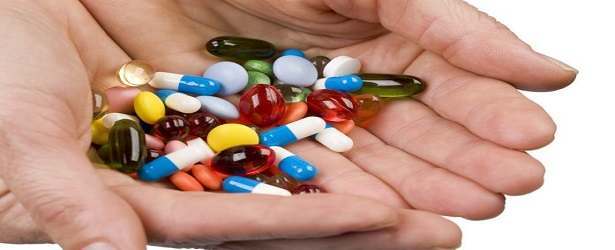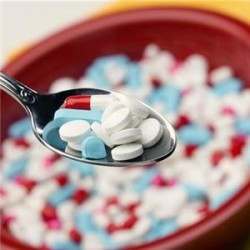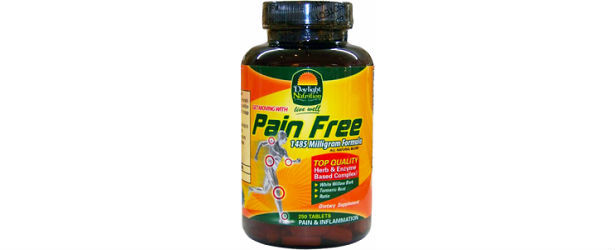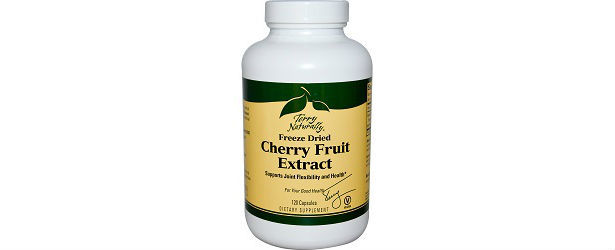
Medicating Gout
Since there is no actual “cure” for gout, if you are a sufferer, there are things you can do to help control the pain and relieve flares quickly. With the proper gout medication, you may even possibly prevent future attacks from even happening again.
Gout Medication
 The onset of gout pain can be severe and most often doctors will prescribe anti-inflammatory medications to relieve inflammation. Commonly used are “non-steroidal anti-inflammatory medications” or NSAIDS. These can help quickly and return normal use of the joints in just a few days. These need to be started as soon as possible after the attack begins.
The onset of gout pain can be severe and most often doctors will prescribe anti-inflammatory medications to relieve inflammation. Commonly used are “non-steroidal anti-inflammatory medications” or NSAIDS. These can help quickly and return normal use of the joints in just a few days. These need to be started as soon as possible after the attack begins.
For some, the attack is too severe for NSAIDS to work and the doctor needs to use Corticosteroid medications such as; prednisone. Injectable forms can be put directly into the joint. Doctors will often save corticosteroids for a last resort since they can have severe side-effects and health risks to the body.
Another option is colchicine. This is a very common gout medication that can be given either orally or through an IV for severe attacks. Diarrhea is a side-effect and some people cannot tolerate colchicine for long periods of time unless your doctor puts you on a very low dose. Doctors sometimes prescribe high doses in the beginning and then stop using the medication after the attack subsides. This medication works best when given within the first 12 hours of the onset of a gout attack.
Prevention for gout attacks coming back is usually a regimen of NSAIDS or colchicine, dietary changes, and lifestyle modifications. If this doesn’t keep gout attacks away, the gout medications Probenecid or allopurinol (Zyloprim) will be used to reduce the uric acid in the blood.
Here Are Some Newer Generation Gout Medications:
- Febuxostate (Uloric) – This drug can reduce the amount of uric acid in the blood, but only to prevent future attacks. It will not treat a gout attack that is in progress.
- Losartan (Cozaar) or Hyzaar – Losartan is actually a blood pressure medication that can lower uric acid levels. It is not commonly used unless other treatments fail because it can lower the blood pressure. It also was not found to reduce uric acid level dramatically like other treatments.
- Fenofibrate (Tricor) – This cholesterol medication can help lower uric acid in the blood. It cannot be used in conjunction with colchicine therapy due to drug interactions and can have side-effects.
- Pegloticase (Krystexxa) – This new gout medication was approved by the FDA in 2010 and is actually the first approved medication for treatment of chronic and reoccurring gout. This medication is given by IV infusions and puts an enzyme into your body to change the way it deals with uric acid, allowing you to flush it out of your body and regulate uric acid levels better. The side-effects have only included; allergic reactions and infusion reactions so far. There may be more reported side-effects after the company collects post-marketing data. What this means is the medication needs to be on the market for longer in order for patients using this new gout medication to report any side-effects they experience.
Gout Medication Alternatives
Natural gout treatments can help prevent uric acid from building up in the body and help the body flush out excess uric acid on its own. Keeping your liver and kidneys healthy can help your body remove anything toxic from your blood, like uric acid. Try some of these gout medication alternatives to help relieve gout pain:
- Water – Whether you are on gout medication or not, increase your water intake. This helps remove uric acid from the blood. You need to drink at least 10 to 12 glasses of water each day. If you allow yourself to get dehydrated, your kidneys will not work well and uric acid levels may rise. Use natural spring water for healthy minerals to balance the body’s pH.
- Less Meat – If you suffer from gout, you must reduce your intake of meat high in purines. Purines turn into uric acid and can raise your risk for gout flares. If you can eat a vegetarian diet that is best during gout attacks, but if that is not possible reduce your intake of red meat, organ meats, sardines, gravies, and legumes.
- Fruits – Cherries are a natural anti-inflammatory and can reduce swelling and pain with gout. Also, increase your intake of any berries and vitamin C rich fruits to help break down uric acid in the body. Black cherry juice is highly effective in relieving gout attacks and pain.

- Less or no Alcohol – Alcohol, especially beer can increase uric acid levels. Try to avoid beer completely, but you may possibly be able to tolerate a 5 ounce serving of wine once in a while.
- Lose weight – Losing weight can decrease your risk of gout and help you feel better faster if you have a flare.
Extra weight makes it hard for your body to control uric acid levels and can put extra weight on stiff and sore joints. Lose weight slowly because if you lose weight too fast, your uric acid levels may actually increase instead of going down.
If you think you have gout, see your doctor as early as possible for diagnosis. You can discuss gout medications with your doctor and ask about any alternative treatments for your condition. Sometimes a combination of all options can help you feel better and get back on your feet faster.
TOP 5
GOUTTreatments |
|||||
| GoutClear | Goutezol | Flamasil | GR-911 | Uricinex | |
|---|---|---|---|---|---|
| 1 | 2 | 3 | 4 | 5 | |
| Price (1 bottle) Price (6 bottles) Best Value |
$49.95 $135.70 |
$59.95 $359.70 |
$42.95 $257.70 |
$39.95 $169.70 |
$29.95 $179.70 |
| Overall Rating | 99.10% | 78% | 73.50% | 62.40% | 62% |
| Effectiveness* |





|





|





|





|





|
| Speed of Results* | Extremely Fast | Fast | Average | Slow | Slow |
| Quality of Ingredients | Premium | Good | Good | Average | Unknown |
| Customer Satisfaction Evaluation | 99.10% | 80% | 75.20% | 73% | 61.10% |
| Safety Evaluation | Safe for Use | Safe for Use | Safe for Use | Safe for Use | Safe for Use |
| Customer Service Rating |





|





|





|





|





|
| Reorder Rate | Highest | Good | Average | Average | Average |
| Return Policy | Risk Free | Unused | Unopened + Restocking Fee | Unopened | 2 opened only |
| Success Rate | 97.30% | 77.30% | 73% | 75.10% | 62% |

 Subscribe Now
Subscribe Now











